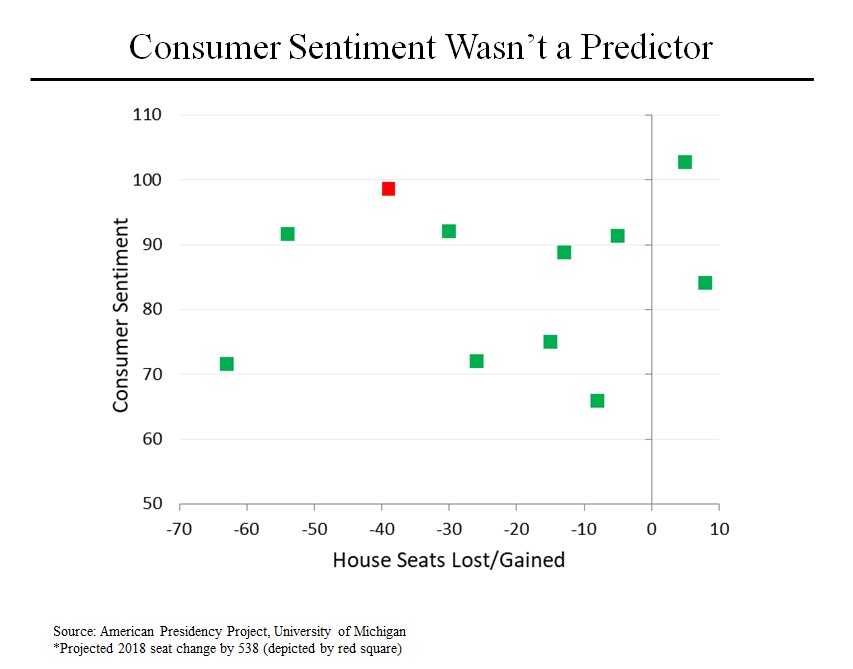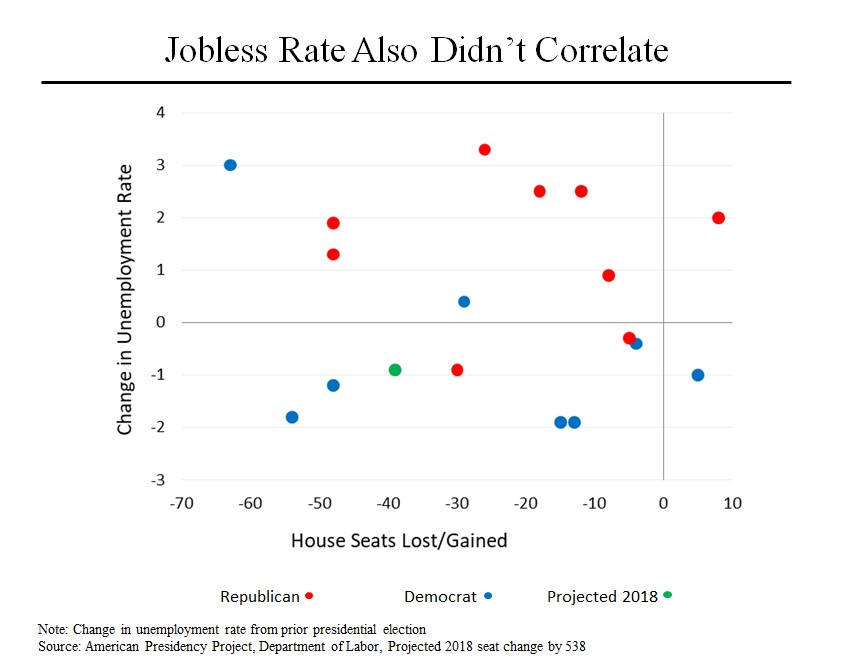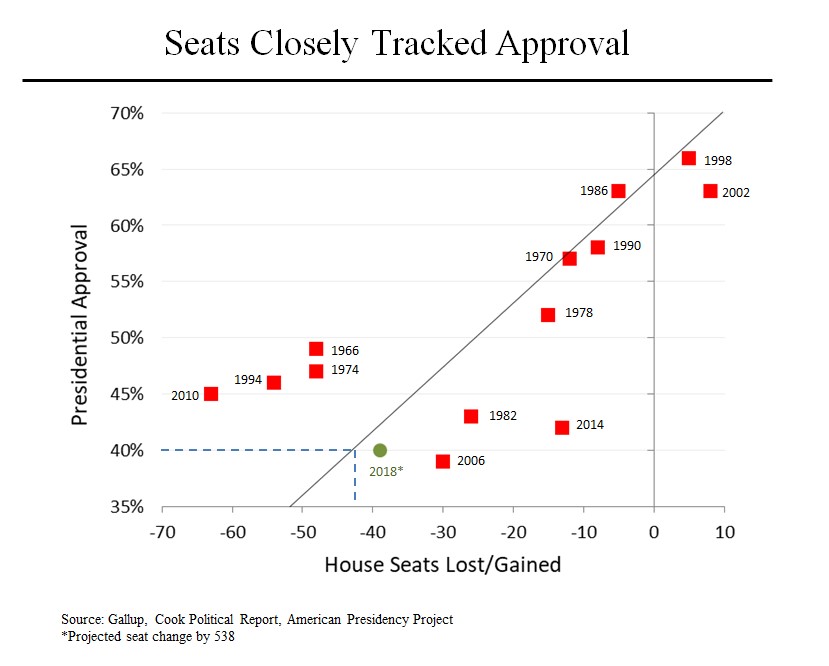On MSNBC’s Morning Joe today, Steven Rattner revisited his charts showing what little relationship a strong economy has with the president’s party’s ability to retain seats in the House of Representatives.
Shortly before the election, we reviewed charts on Morning Joe that argued that the incumbent president’s approval rating has historically been a better predictor of mid-term election results than the state of the economy. With the results now in, the Democrats’ strong showing – particularly in the House of Representatives – confirmed that this historical correlation remains intact.
As President Trump has often bragged, he went into this election with consumer sentiment at a historically high level. Indeed, only one other president (Bill Clinton in 1998) enjoyed such strong sentiment on the eve of a mid-term election. But unlike Mr. Clinton, who was handed a pick-up of five seats in the House, Mr. Trump will end up losing about 39. That is the third worst showing since this consumer confidence series was first compiled in the late 1970s. During this four decade time period, seven incumbent presidents saw their party perform relatively better, despite consumer sentiment levels lower than Mr. Trump’s.
Measuring the election results against the change in the unemployment rate during the two previous years didn’t show well for Mr. Trump either. Of the other eight incumbent presidents who experienced a drop in unemployment, only two lost more House seats than Mr. Trump’s Republicans. Meanwhile, six of the nine presidents who experienced rising unemployment lost fewer House seats than Republicans did earlier this month.
That brings us to the correlation between approval ratings and House seats gained or lost, which has historically been about 70 percent. This relationship indicated a loss of 42 seats for Republicans in this year’s mid-terms. In fact, depending on how a handful of still-uncalled races get resolved, it appears that the Republicans will have lost around 39 seats. In other words, this prediction model worked.
It’s interesting to note that other presidents with similarly low approval ratings – George W. Bush in 2006, Ronald Reagan in 1982 and Barack Obama in 2014 – substantially outperformed Mr. Trump this year. On the other hand, some presidents with higher ratings – Mr. Obama in 2010, Mr. Clinton in 1994, Lyndon Johnson in 1966 and Gerald Ford in 1974 – did even worse than Mr. Trump.








